Publications
Articles, publications, books, tools and multimedia features from the U.S. Institute of Peace provide the latest news, analysis, research findings, practitioner guides and reports, all related to the conflict zones and issues that are at the center of the Institute’s work to prevent and reduce violent conflict.
Question And Answer
Amid a Changing Global Order, NATO Looks East
Recent Developments in Bangladesh: A Human Rights Update
Christine Fair, South Asia expert, testified before the Congressional Human Rights Caucus on Bangladesh.
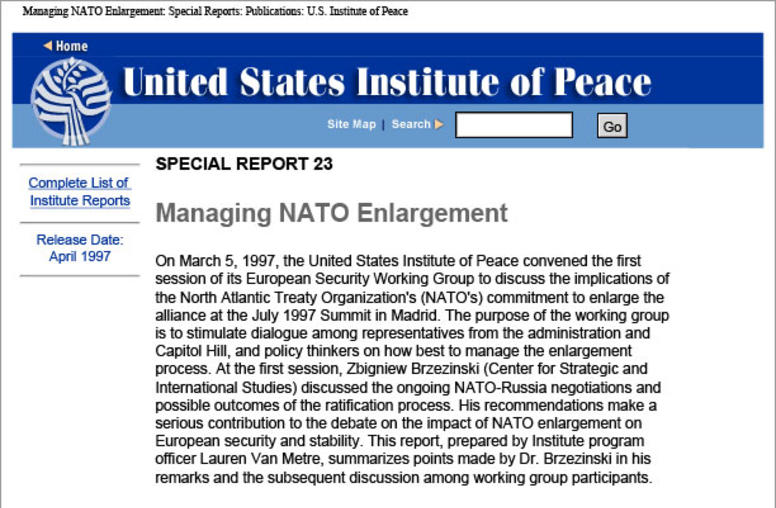
Managing NATO Enlargement
On March 5, 1997, the United States Institute of Peace convened the first session of its European Security Working Group to discuss the implications of the North Atlantic Treaty Organization's (NATO's) commitment to enlarge the alliance at the July 1997 Summit in Madrid.
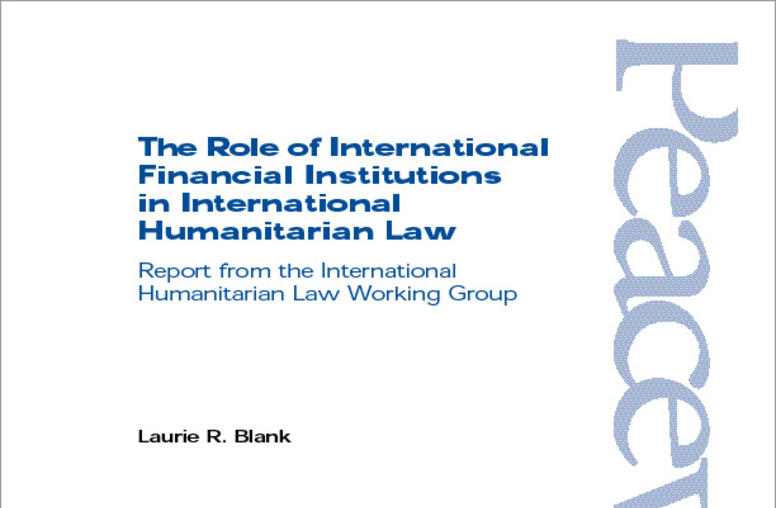
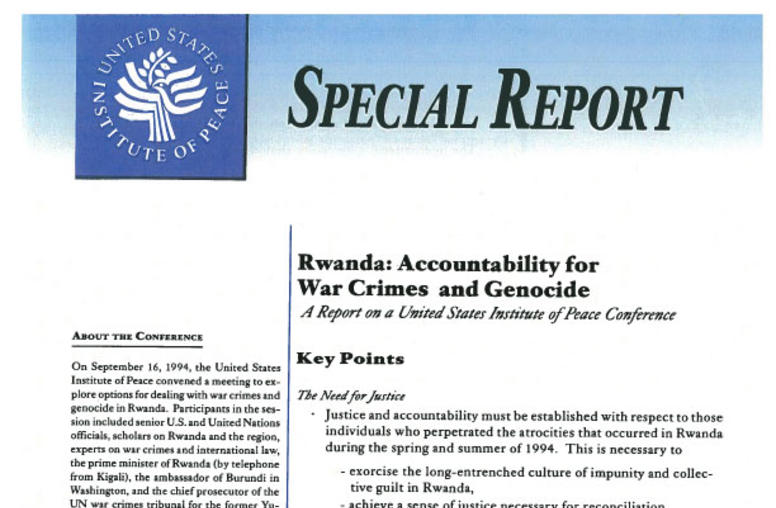
Rwanda: Accountability for War Crimes and Genocide
Before 1994, Rwanda was the most densely populated country in continental Africa. Between April and August 1994, that statistic shifted radically, as Rwanda lost 20 percent to 40 percent of its population to slaughter or exile.
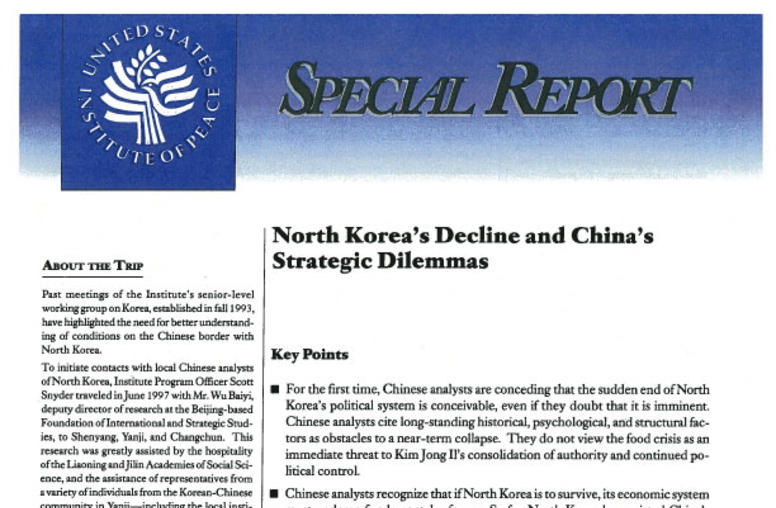
North Korea's Decline and China's Strategic Dilemmas
For the first time, Chinese analysts are conceding that the sudden end of North Korea's political system is conceivable, even if they doubt that it is imminent. Chinese analysts cite long-standing historical, psychological, and structural factors as obstacles to a near-term collapse. Chinese analysts recognize that if North Korea is to survive, its economic system must undergo fundamental reforms.
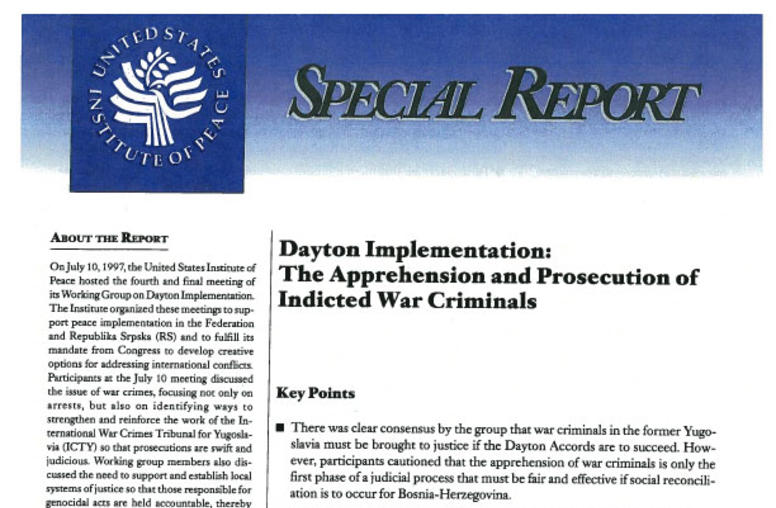
Dayton Implementation: The Apprehension and Prosecution of Indicted War Criminals
On July 10, 1997, the United States Institute of Peace hosted the fourth and final meeting of its Working Group on Dayton Implementation. The Institute organized these meetings to support peace implementation in the Federation and Republika Srpska (RS). Participants at the July 10 meeting discussed the issue of war crimes, focusing not only on arrests, but also on identifying ways to strengthen and reinforce the work of the International War Crimes Tribunal for Yugoslavia (ICTY) so that pro...
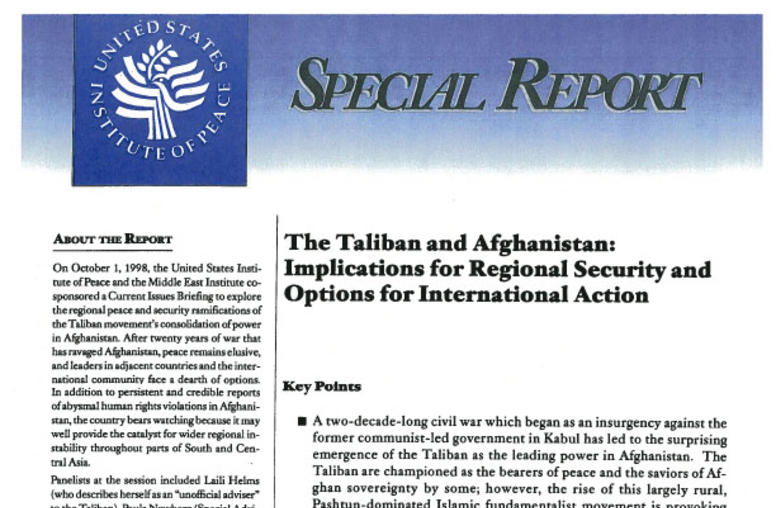
The Taliban and Afghanistan: Implications for Regional Security and Options for International Action
The United States Institute of Peace and the Middle East Institute cosponsored a Current Issues Briefing to explore the regional and security ramifications of the Taliban movement's consolidation of power in Afghanistan. After twenty years of war that has ravaged Afghanistan, peace remains elusive, and leaders in adjacent countries and the international community face a dearth of options. In addition to persistent and credible reports of abysmal human rights violations in Afghanistan, the cou...
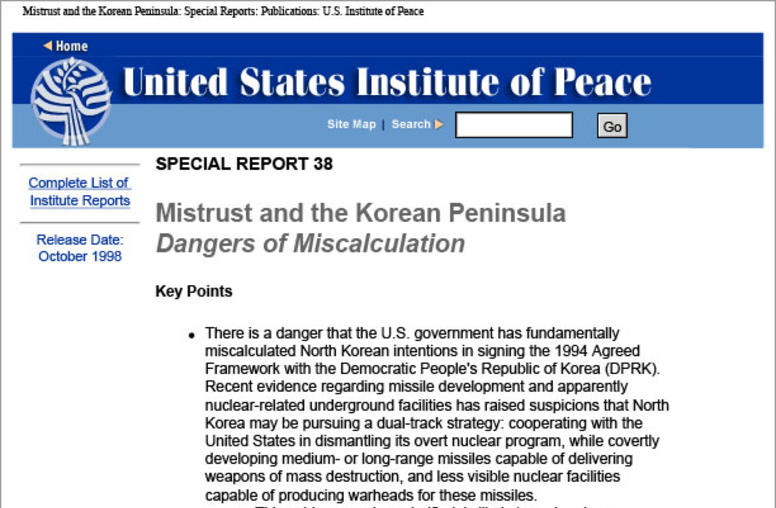
Mistrust and the Korean Peninsula: Dangers of Miscalculation
An unwillingness to challenge North Korea now with a more concerted diplomatic and deterrence policy, lest it precipitate a repeat of the 1994 crisis, risks being confronted later by a qualitatively different North Korean military threat. There is a significant danger of miscalculation: while previous North Korean induced crises have strengthened Pyongyang's negotiating leverage in general and perhaps the Korean People's Army's strong hold on power in particular, there is a serious risk that ...
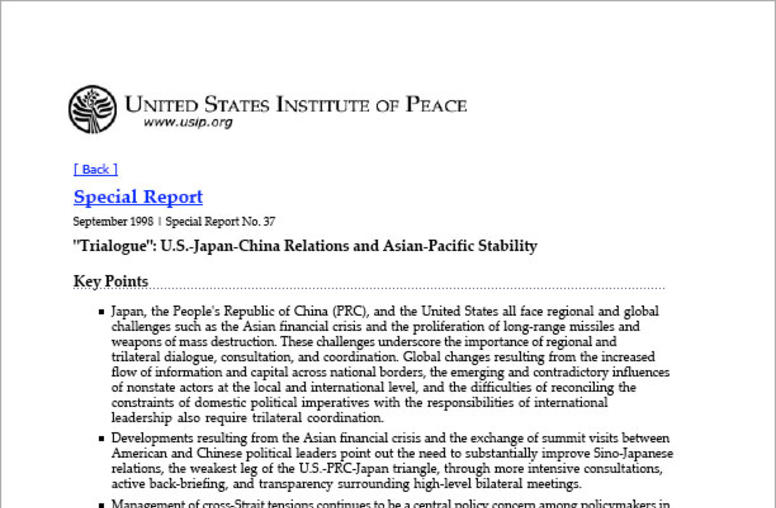
"Trialogue": U.S.-Japan-China Relations and Asian-Pacific Stability
The exchange of summits between the leaders of the People's Republic of China and the United States, the Asian financial crisis, and the decision by India and Pakistan to engage in nuclear testing have redirected the security agenda of the Asia-Pacific region. Such developments underscore the ongoing difficulties inherent in the transition from traditional approaches to security defined by the Cold War to a post-Cold War structure of international relations in the Asia-Pacific.
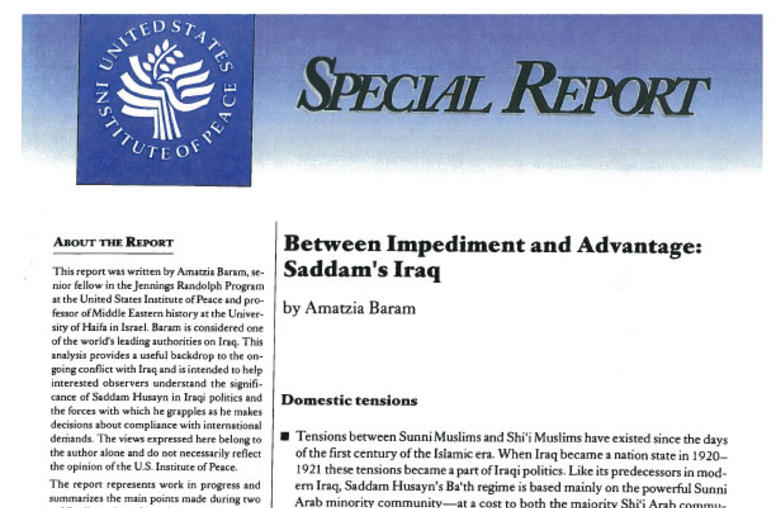
Between Impediment and Advantage: Saddam's Iraq
The report represents work in progress and summarizes the main points made during two public discussions about the nature of domestic politics in Iraq under Saddam. This analysis provides a useful backdrop to the ongoing conflict with Iraq and is intended to help interested observers understand the significance of Saddam Hussain in Iraqi politics and the forces with which he grapples as he makes decisions about compliance with international demands.